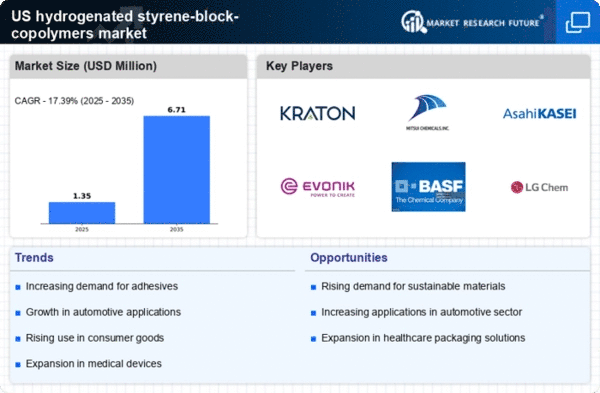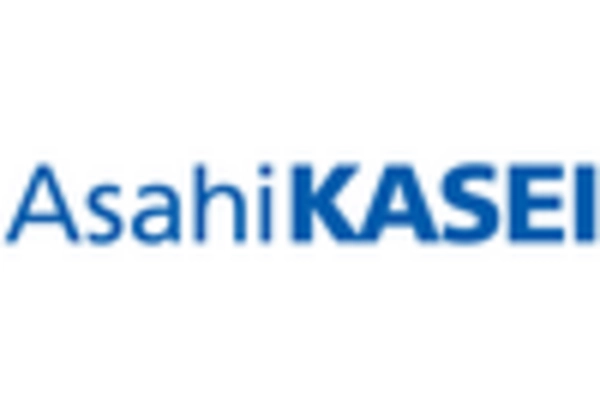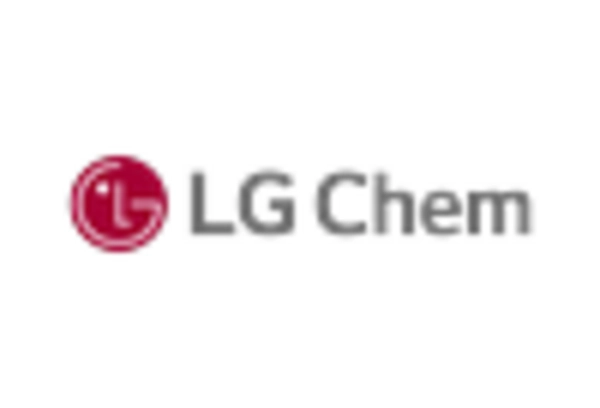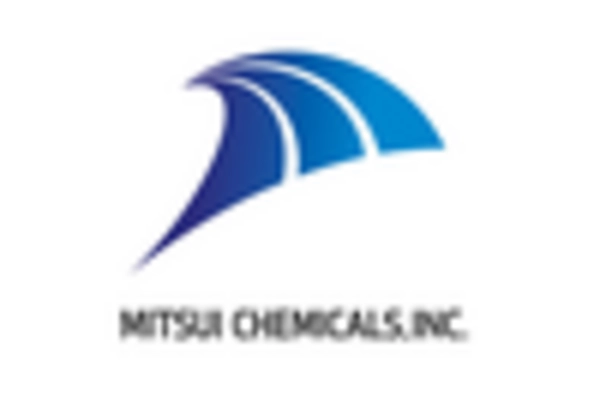Growth in Construction Sector
The hydrogenated styrene-block-copolymers market is experiencing a boost due to the expansion of the construction sector in the US. As infrastructure projects increase, the demand for versatile materials that offer durability and flexibility rises. Hydrogenated styrene-block-copolymers are increasingly utilized in adhesives, sealants, and coatings, which are essential in construction applications. The market for construction materials is projected to grow at a CAGR of approximately 5% through 2026, indicating a robust opportunity for hydrogenated styrene-block-copolymers. This growth is driven by the need for high-performance materials that can withstand varying environmental conditions, thereby enhancing the overall performance of construction projects. Consequently, the hydrogenated styrene-block-copolymers market is likely to benefit from this upward trend in construction activities.
Increased Focus on Consumer Goods
The hydrogenated styrene-block-copolymers market is witnessing heightened interest from the consumer goods sector. As manufacturers seek materials that provide enhanced performance and aesthetic appeal, hydrogenated styrene-block-copolymers are becoming a preferred choice for products such as packaging, toys, and household items. The consumer goods market in the US is expected to grow by approximately 4% annually, which could translate into increased demand for innovative materials. The versatility of hydrogenated styrene-block-copolymers allows for customization in product design, making them attractive to brands aiming to differentiate themselves in a competitive landscape. This trend suggests that the hydrogenated styrene-block-copolymers market will continue to thrive as consumer preferences evolve.
Innovation in Packaging Solutions
The hydrogenated styrene-block-copolymers market is benefiting from innovation in packaging solutions. As companies strive to enhance product shelf life and reduce environmental impact, the demand for advanced packaging materials is increasing. Hydrogenated styrene-block-copolymers are recognized for their excellent barrier properties and flexibility, making them suitable for various packaging applications. The packaging industry in the US is expected to grow by approximately 3% annually, which could lead to increased adoption of hydrogenated styrene-block-copolymers. This trend indicates that as sustainability becomes a priority, the hydrogenated styrene-block-copolymers market may see a rise in demand for eco-friendly packaging solutions.
Rising Demand for Medical Applications
The hydrogenated styrene-block-copolymers market is experiencing growth driven by the increasing demand for medical applications. With advancements in healthcare technology, there is a growing need for materials that offer biocompatibility and flexibility. Hydrogenated styrene-block-copolymers are being utilized in medical devices, drug delivery systems, and other healthcare products due to their favorable properties. The medical device market in the US is projected to grow at a CAGR of around 6% through 2027, indicating a substantial opportunity for hydrogenated styrene-block-copolymers. This trend suggests that as the healthcare sector continues to innovate, the hydrogenated styrene-block-copolymers market will likely expand in tandem.
Regulatory Support for Advanced Materials
The hydrogenated styrene-block-copolymers market is likely to benefit from regulatory support aimed at promoting advanced materials. The US government has been implementing policies that encourage the use of high-performance materials in various industries, including automotive, construction, and consumer goods. These regulations often focus on sustainability and performance, aligning well with the properties of hydrogenated styrene-block-copolymers. As industries adapt to these regulations, the demand for compliant materials is expected to rise. This regulatory environment may lead to an increase in market size, as companies seek to innovate and meet new standards. The hydrogenated styrene-block-copolymers market could see a significant uptick in adoption as a result of these supportive measures.

















